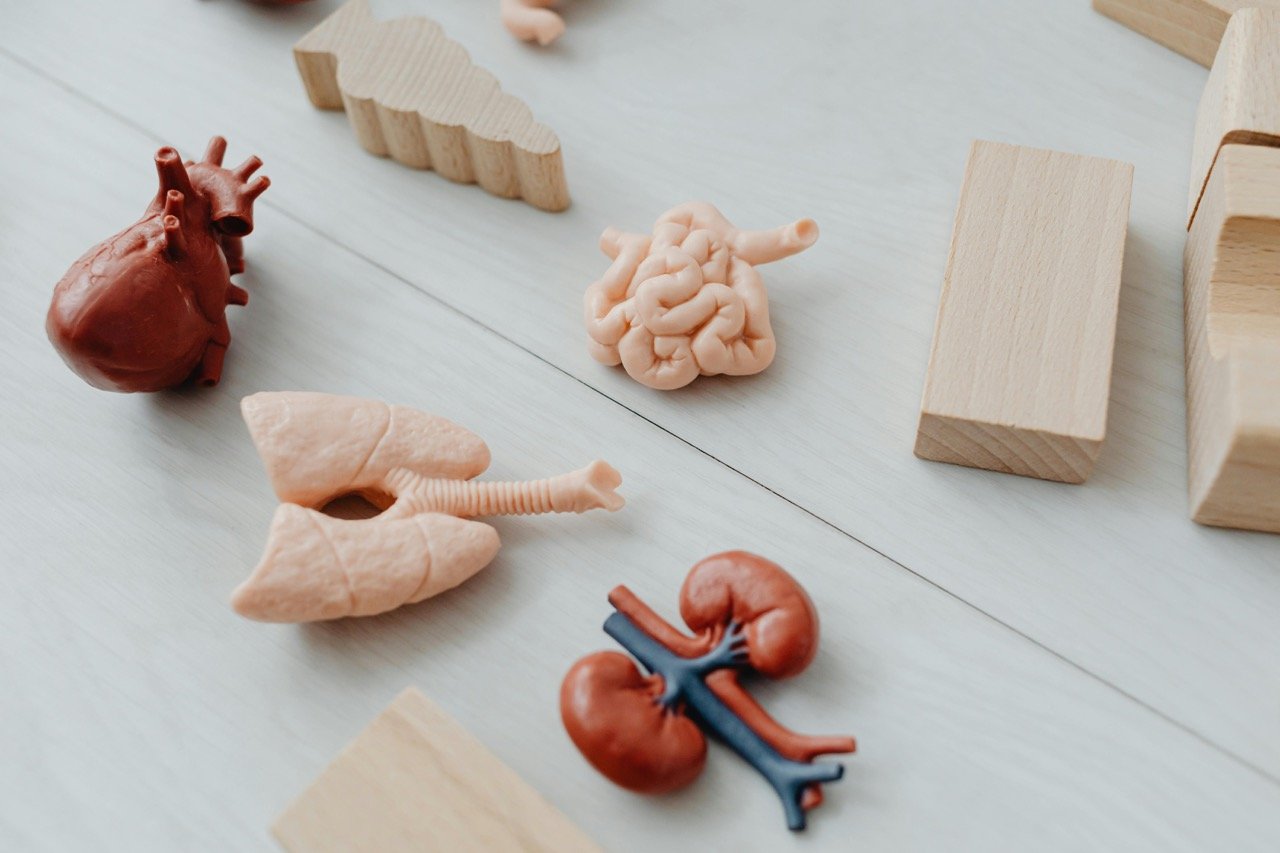Leaky Gut and Inflammation
Photo by Photo By: Kaboompics.com
Have you ever heard of the term "leaky gut"? It might sound odd, but it's a real health condition that can affect everything from our digestion to our mood. At its core, leaky gut describes a situation where the lining of the intestines becomes “leaky,” letting substances slip through that shouldn’t be able to. This issue is officially known as intestinal permeability and directly impacts our gut barrier function—basically, the defense system of the gut. When working well, this barrier keeps harmful substances out of the bloodstream and supports a healthy gut environment. But when this barrier weakens, problems arise.
Why is leaky gut something we should care about? Because it’s often linked to chronic inflammation, which is known to contribute to many health issues. Think of systemic inflammation as a fire that can spread throughout the body. When that fire reaches critical areas, it can lead to all sorts of health concerns. Many people don’t realize that a leaky gut can actually trigger immune activation and that certain lifestyle factors—like diet, stress, and even toxin exposure—can weaken this barrier over time.
And here’s something even more surprising: our gut and brain are closely connected, an interaction called the gut-brain axis. This means that what happens in the gut doesn’t stay in the gut! If inflammation and gut issues get out of hand, they can influence our mental well-being too. External factors, such as environmental toxins, can further strain the gut, adding another layer of challenge to maintaining our health.
Learn more about the Gut in our FREE Leaky Gut Webinar
Photo by CDC
Understanding Gut Health and the Microbiome
Our gut is a complex world of tiny organisms—bacteria, fungi, and other microorganisms—that play a huge role in our health. This “inner ecosystem” is known as the microbiome. When it’s in balance, the microbiome supports good digestion, immune health, and even mood regulation. But when it falls out of balance, a condition called dysbiosis, all kinds of problems can occur.
Here are some essential players in a healthy gut system:
Gut-Associated Lymphoid Tissue (GALT): This is a part of our immune system that lines the intestines, helping protect against harmful bacteria and viruses. GALT is like the gut’s personal security system, on the lookout for threats.
Enteric Nervous System: Often called the “second brain,” this system manages all the communication between our gut and brain, regulating digestion and responses to different foods.
Tight Junctions: These are the “glue” that holds cells in the gut lining together, ensuring no unwanted substances can pass into the bloodstream.
Healthy gut function also depends on mucosal immunity—a type of defense that protects the lining of the gut. Imagine this layer as a shield, helping to ward off harmful invaders. But for our mucosal immunity to stay strong, it needs the right nutrients, such as short-chain fatty acids like butyrate. These fatty acids come from fiber-rich foods like vegetables and whole grains, feeding the good bacteria in our gut.
Another key player in maintaining a strong gut barrier is zonulin. This protein controls the opening and closing of tight junctions, acting almost like a gatekeeper. When zonulin levels go up—often due to infections or stress—these junctions loosen, increasing the risk of leaky gut.
We can support a healthy microbiome by including probiotics in our diets, which are found in foods like yogurt, kefir, and fermented vegetables. These friendly bacteria help balance the gut and keep dysbiosis at bay.
Take our FREE assessment to measure the health of your Gut Microbiome
Photo by Graphy Co
Triggers and Contributors to Leaky Gut
Several common factors can make the gut lining more “leaky” and disrupt the delicate balance of our gut environment. Understanding these triggers can help us make healthier choices.
Food Intolerances: Certain foods can irritate the gut lining, especially for people with specific intolerances. For example, gluten sensitivity and non-celiac gluten sensitivity can increase gut inflammation and contribute to intestinal permeability. Dairy, soy, and artificial additives can also play a role in weakening the gut.
High-Fat and Processed Foods: While fats are essential in a balanced diet, diets high in processed or fried foods can stress the gut. High-fat diets increase gut permeability, especially when combined with low-fiber, processed foods that lack nutrients our gut needs.
Alcohol Consumption: Drinking alcohol can compromise gut health by disrupting beneficial bacteria and irritating the gut lining, making it more vulnerable to leaks. Heavy or regular alcohol consumption is one of the most significant contributors to a weakened gut.
Non-Steroidal Anti-Inflammatory Drugs (NSAIDs): Medications like ibuprofen and aspirin, when used frequently, can damage the gut lining. NSAIDs are widely used for pain relief, but regular use can wear down the gut barrier.
Oxidative Stress: This is a form of cellular damage caused by free radicals—unstable molecules that harm cells. Oxidative stress is intensified by poor diet, pollution, and lack of sleep, all of which can damage gut cells.
Stress-Induced Inflammation and HPA Axis Dysregulation: Ever felt “butterflies” in your stomach when stressed? Stress doesn’t just affect our minds; it also impacts our gut. The body’s HPA axis—a system that manages our stress responses—can become overactive, increasing inflammation and weakening the gut barrier.
By being mindful of these triggers, we can take practical steps to support our gut health, like reducing alcohol, managing stress, and choosing foods that nourish instead of harm.
Interested in working with a Gut Specialist?
Book with one of our team members to see how we can come alongside you.
Inflammatory Responses and Health Conditions Linked to Leaky Gut
When the gut barrier weakens, it can set off a chain reaction of inflammatory responses that extend beyond the digestive system. Here’s a look at how leaky gut can lead to various health conditions:
Lipopolysaccharides (LPS) and Endotoxins: LPS are toxic molecules found in certain bacteria. When they pass through a leaky gut barrier into the bloodstream, they act as endotoxins, triggering the immune system and increasing systemic inflammation.
Bacterial Translocation: A leaky gut allows bacteria to migrate from the gut into other parts of the body. This bacterial translocation activates the immune system, which responds by releasing cytokines, proteins that promote inflammation.
Pro-Inflammatory Markers and Autoimmune Responses: The immune response to LPS and bacterial translocation leads to an increase in pro-inflammatory markers, which can be detected in blood tests. Over time, these markers contribute to chronic inflammation and may even lead to autoimmune responses, where the immune system mistakenly attacks healthy tissues.
Metabolic Endotoxemia: When endotoxins circulate in the bloodstream, they can cause a condition called metabolic endotoxemia, which affects metabolism and has been linked to obesity, insulin resistance, and even heart disease.
Lipopolysaccharide-Binding Protein: Our body tries to defend against endotoxins with this protein, which binds to LPS. However, when endotoxin levels are high, our defenses can become overwhelmed.
Leaky gut is also linked to certain health conditions, including:
Crohn's Disease and Inflammatory Bowel Disease (IBD): Both are inflammatory conditions of the digestive tract, often exacerbated by a leaky gut. Research suggests that intestinal permeability plays a role in worsening these diseases.
By recognizing these inflammatory responses and related health risks, we can take preventative actions and seek support from healthcare professionals when needed.
We have put together a standard protocol to reduce inflammation. Click the link below to access
Conclusion
Supporting a healthy gut and reducing inflammation can feel empowering because many solutions are within our control. Making simple changes in diet and lifestyle can make a big difference in maintaining a strong gut barrier.
Here are some practical, gut-friendly tips to consider:
Omega-3 Fatty Acids: These healthy fats, found in fish, flaxseeds, and walnuts, help reduce inflammation throughout the body, including the gut.
Antioxidants: Foods rich in antioxidants, like berries, dark chocolate, and leafy greens, combat oxidative stress, a key contributor to gut damage.
Polyphenols: Found in colorful fruits, vegetables, and teas, polyphenols nourish beneficial gut bacteria and help maintain gut health.
Fermented Foods: Adding fermented foods like sauerkraut, yogurt, and kimchi provides natural sources of beneficial bacteria to balance the gut microbiome.
Prebiotics: Think of prebiotics as “food for probiotics.” They’re found in foods like onions, garlic, and bananas and help feed the good bacteria in our gut.
Managing stress is also important. High levels of cortisol, our body’s stress hormone, can weaken the gut barrier over time. Stress reduction techniques—like mindfulness, exercise, or even talking to someone—can go a long way in supporting gut health.
Finally, if you suspect a gut issue, conditions like Small Intestinal Bacterial Overgrowth (SIBO), Irritable Bowel Syndrome (IBS), Ulcerative Colitis, and Celiac Disease are all worth discussing with a doctor. They may be linked to a leaky gut, and addressing them can support whole-body wellness.
Remember, gut health is a journey. With small, steady changes, you can strengthen your gut and support a happier, healthier body!
Here is a link to our most trusted and recommended Probiotics!




